In this section: Belinda Bozzoli, Jennifer Glennie, Sarah Gravett and more …
Belinda Bozolli
Deputy Vice-Chancellor
University of the Witwatersrand
Tel: +27 11 717 1152
www.wits.ac.za
Belinda Bozzoli is the deputy vice chancellor (research) at the University of the Witwatersrand and chair of the board of the National Research Foundation. In the past, she has served as the head of the department of sociology (1996 to 1998) and as head of the school of social sciences (2001 to 2003) at Wits.
Bozzoli graduated with a DPhil from the University of Sussex in 1975. She subsequently worked as an associate fellow at Yale University (1978 to 1979) in the United States, and as a research fellow at Cambridge University, United Kingdom, and at the Ecole des Hautes Etudes en Sciences Sociales, France.
She was twice the Ernest Oppenheimer visiting fellow at Oxford University. She was a finalist in the Melville Herskovits Award and a winner of the Human Sciences Research Council Top Researcher Award for the book Women of Phokeng.
Bozzoli has published six books and numerous articles. She serves on the boards of the following journals: Urban Forum, Journal of the Contemporary African Studies, African Studies and Sociology.
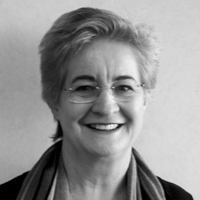
Jennifer Glennie
Founding Director
South African Institute for Distance Education
Tel: +27 11 403 2813
www.saide.org.za
Jennifer Glennie is director of the South African Institute for Distance Education (Saide), a non-profit organisation committed to increasing access to lifelong education for all South Africans.
It is known for advocating, developing and propagating quality distance education methods in the Southern African context and recently launched two major projects in Sub-Saharan Africa; OER Africa, facilitates the development of open education resources among African universities, and the Education Technology Initiative which, with the Centre for Educational Technology at the University of Cape Town, works with seven African universities to introduce new technologies in teaching and learning.
As a member of the Minister’s Council on Higher Education, Glennie has been active in the formation of the Higher Education Quality Committee. She is the South African government’s representative on the board of the Commonwealth of Learning; has contributed to the transformation of Unisa through membership of its Council; was the founding president of the National Association of Distance Education Organisations in South Africa and is chairperson of the board of the Community Agency for Social Enquiry. Her distance-education experience was acquired over 15 years in senior positions at the Sached Trust.
She was awarded the Chancellor’s Medal at the University of Pretoria for her contribution to education and is an honorary fellow of the Commonwealth of Learning for her contribution to distance education.
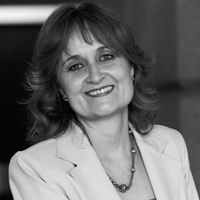
Sarah Gravett
Dean of the Faculty of Education
University of Johannesburg
Tel: +27 11 559 2689
www.uj.ac.za
Professor Sarah ‘Saartjie” Gravett has been dean of the faculty of education at the University of Johannesburg since January 2007. Before joining the then-Rand Afrikaans University education division as a researcher in 1993, Gravett was already an established educator with 11 years of teaching experience.
In 1999 she took a professorship in higher and adult education. Under her leadership the faculty has spearheaded a number of research projects mainly focusing on the improvement of education practice, as well as community engagement projects linked to schools in the communities.
Gravett’s interest is in the design and implementation of events that promote deep learning. Her current passion is childhood education and the faculty will be launching an Institute for Childhood Education on the UJ Soweto campus in 2010, which will include a foundation phase teacher education programme and a school.
Gravett believes that deep and meaningful learning is best facilitated through education dialogue, which can be characterised as relational, collaborative and reciprocal inquiry, a main thrust of her research. She has received numerous awards in recognition of her professional achievements and is the author or co-author of a number of books, including Teaching and learning in higher education.
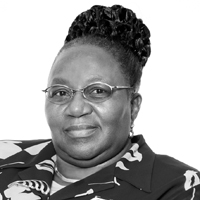
Rachel Vuyiswa Gumbi
Rector and Vice-Chancellor
University of Zululand
Tel: +27 35 902 6624
www.uzulu.ac.za
Professor Rachel Vuyiswa Gumbi is the fifth rector and vice-chancellor of the University of Zululand, and the first woman to hold this position. She assumed the post in May 2003 after seven years as chief director: human resource development at the national Department of Health.
Gumbi qualified as a teacher, trained and worked as a registered nurse and midwife and in 1975 was appointed a tutor at King Edward VIII Hospital’s College of Nursing. Her academic career started at the University of Zululand where she lectured in the department of nursing science. She moved on to the University of Transkei where she was head of the departments of health education and nursing science before accepting the health department post.
She serves as a member of the World Health Organisation and chair of the Global Advisory Group on Nursing and Midwifery, advising on policy matters linked to health care delivery, including the contribution of nurses and midwives. She was the first black president of the South African Nursing Council.
Among her awards are a Kellogg fellowship, the South African Medical and Dental Practitioners Award for Leadership and the Chicago State University’s Award for Leadership. Gumbi has served in the Oliver Tambo Fellowship and Medical Education for South African Blacks.
She is well travelled in Africa, has visited and trained in a number of overseas institutions and countries and has addressed both national and international audiences. She is in the forefront of the current debates related to the transformation of the higher education sector in South Africa.
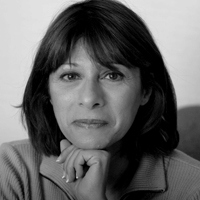
Veronica McKay
CEO
Kha ri Gude South African Mass Literacy
Tel: +27 12 312 5687
www.education.gov.za
In 2008 Professor Veronica McKay was appointed as the CEO for the Kha ri Gude South African Mass Literacy Campaign, a programme driven by the national department of education and intended to enable 4.7-million South Africans to become literate by 2012.
In its first year the campaign recruited nearly 360 000 learners, which grew to 640 800 in 2009. She was formerly director of Unisa’s Institute for Adult Basic Education and Training, which trained more than 80 000 adult educators, 230 000 registration and voting officers for the 2004 elections, and 4 000 community development workers.
The institute also ran a component of the education department’s South African National Literacy Initiative, enabling 342 000 adults to become literate. McKay, a trained sociologist, has conducted a wide range of interdisciplinary research for organisations such as Unesco, the International Labour Organisation, the Commonwealth of Learning and the Association for the Development of Education in Africa.
She has authored and co-authored a number of articles and books, as well as Commonwealth award-winning teacher education materials. In 2000 she won the education section of the Shoprite SABC3 Woman of the Year.
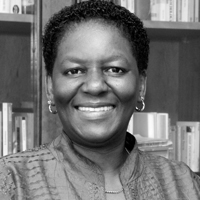
Thoko Mayekiso
Deputy Vice-Chancellor: Research, Technology and Planning
Nelson Mandela Metropolitan University
Tel: +27 41 50 4211
www.nmmu.ac.za
Professor Thoko Mayekiso joined the Nelson Mandela Metropolitan University (NMMU) in 2007 as executive dean of the faculty of arts. She had served in a number of capacities at the University of Transkei when she proceeded to the University of the Witwatersrand as head of the school of human and community development, and subsequently became vice-dean and acting executive dean before moving on to NMMU.
Born in Lusikisiki, Eastern Cape, she obtained a BA, BA honours and an MA in psychology from the University of Fort Hare and a DPhil (cum laude) from the Free University of Berlin, Germany. She is registered as a clinical psychologist with the Health Professions Council of South Africa.
Mayekiso has an impeccable record as a researcher and a mentor, especially in the area of HIV/Aids, and has supervised many postgraduate students, especially at master’s and doctoral levels. She has written articles in accredited journals nationally and internationally, presented papers at national and international conferences, and contributed to the writing of book chapters.
Mayekiso serves on the board of the National Development Agency, the Children’s Institute at the University of Cape Town and the Emthonjeni Centre at the University of the Witwatersrand. She has also served as an advisory board member of the Oprah Winfrey Leadership Academy for Girls in South Africa.
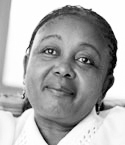
Lineo Vuysa Mazwi-Tanga
Vice-Chancellor
Cape Peninsula University of Technology
Tel: +27 21 460 3352
www.cput.ac.za
Professor Lineo Vuysa Mazwi-Tanga is the current rector and vice-chancellor of Cape Peninsula University of Technology (CPUT) and one of only three women vice-chancellors in South Africa. Mazwi-Tanga’s career as an educationist began during the volatile 1980s in several high schools in the Eastern Cape where she taught mathematics and geography.
In 1987 she joined the University of Fort Hare as a lecturer in geography where she also completed her master’s degree; she was later awarded a certificate in higher education administration from Bryn Mawr College in Pennsylvania in the United States. A research award took her to Durham University in the United Kingdom for an MSc in climatology and she was admitted as a fellow of the Royal Meteorological Society.
A post at Peninsula Technikon as deputy vice-chancellor: student affairs introduced her to a challenging portfolio which she carried out for 10 years. The post included involvement in national bodies like the National Student Financial Aid Scheme, Higher Education South Africa and the National Advisory Committee on Innovation.
A term as ministerial adviser in the national Department of Education was to serve her in good stead when she assumed the leadership of CPUT in 2006.
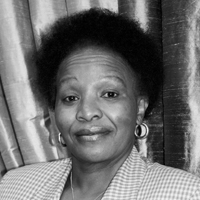
Irene Moutlana
Vice-Chancellor
Vaal University of Technology
Tel: +27 16 950 9275
www.vut.ac.za
In 2006, Professor Irene Nomhle Ntombikayise Moutlana became the first woman to be named principal and vice-chancellor of the Vaal University of Technology. Earlier, at the Port Elizabeth Technikon, she was the first black female to be appointed as a deputy vice-chancellor: academic in the former technikon sector.
As a merger between the Port Elizabeth Technikon and the University of Port Elizabeth began taking shape, Moutlana served as the interim deputy vice-chancellor: research, innovation and technology at the newly created Nelson Mandela Metropolitan University.
Moutlana’s academic career began in 1972 when she enrolled for a BA degree at the University of the North (now the University of Limpopo). This was followed by a BEd which she obtained from Unisa in 1984. In 1985, she was awarded a Fullbright Scholarship which enabled her to study towards an MEd at Harvard University in the United States. This was rapidly followed by her DEd degree conferred by Harvard which she pursued with a merit bursary from the Human Sciences Research Council.
Moutlana has authored articles for publication in accredited journals on matters pertaining broadly to higher education and more specifically to curriculum development.
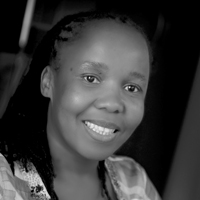
Gugu Ndebele
Deputy Director-General
Department of Education
Tel: + 27 12 312-5911
www.education.gov.za
Gugu Ndebele heads the key division of social and school enrichment programmes in education in the national Department of Education. Its R2.4-billion budget is directed to a number of portfolios such as the national school nutrition programme, adult education and training, gender equity, values in education, sports, arts and culture, rural education, and health in education (including HIV and Aids).
Ndebele was instrumental in launching the first national literacy outfit, the South African Literacy Initiative, a predecessor of the current Kha ri Gude initiative. She served as the director for strategic planning in the education department before being promoted to chief director for special programmes in education, responsible for race and values, gender equity, school sport, arts and culture and school safety.
Ndebele was also a chief director of further education and training colleges and played a critical role in their recapitalisation. She sits on the boards of Dreamfields and the Unesco Institute for Learning, based in Hamburg. She is a fellow of the 21st Century Trust and has served on, inter alia, the National Skills Authority and Mining Qualifications Authority.
Ndebele has received a number of awards, including the British Council’s Chivening Scholarship. The Adult Educators and Trainers Association of South Africa conferred an award on Ndebele for ‘Creating access to adult learning for women”.
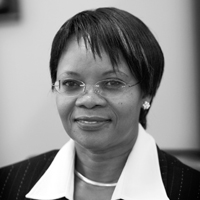
Rocky Ralebipi-Simela
Deputy Vice-Chancellor: Academic
Central University of Technology
Tel: +27 51 507 3005
www.cut.ac.za
The Central University of Technology (CUT) in the Free State specialises in science, engineering and technology. Professor Rocky Ralebipi Simela has been deputy vice-chancellor: academic since October 2007. She holds a master’s degree in library and information science from the University of Pittsburgh and a PhD in the same field from the University of Minnesota.
She has served in the higher education sector in many capacities, including professor of library and information science, chief executive: administrative affairs, University of the North (currently University of Limpopo) and executive dean: faculty of humanities, management sciences and law, University of Venda.
She has published books, book chapters and journal articles in the library and information science field, and is recognised nationally and internationally for her leadership role in her profession. As chairperson of the National Council on Library and Information Services and former chairperson of the National Library of South Africa.
Ralebipi-Simela serves on many national councils and boards, including Sabinet Online, and recently chaired the Higher Education Quality Committee (HEQC) audit panel for the Nelson Mandela Metropolitan University. She also serves on the HEQC audit committee of the Council on Higher Education.
As an American Council on Education fellow she facilitated some of Higher Education South Africa’s higher education leadership and management programmes for deans and heads of schools.
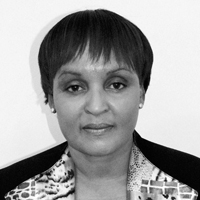
Palesa Tyobeka
Deputy Director-General: General Education and Training
Department of Education
Tel: + 27 12 312-5911
www.education.gov.za
Palesa Tyobeka was among the first to be appointed to the national Department of Education after the advent of democracy in 1994. She serves in key positions, heading a central branch which plays an oversight role for strategic programmes such as teacher education, curriculum implementation in grades R-9, the education of learners experiencing barriers to learning and the monitoring and reporting on the quality of learning and teaching in schools.
Tyobeka trained as a teacher at the University of Fort Hare where she majored in English and psychology. After teaching for several years she moved to the South African Institute of Race Relations’ Education Information Centre, supporting teachers and Grade 11 and 12 students preparing for matric. In 1983 she joined the English Advisory Services, which she headed between 1987 and 1994 before she moved to the national education department.
Tyobeka holds a master’s degree in the teaching of English from the Centre for Applied Language Studies at Reading University in the United Kingdom; a diploma in the teaching of English as second language from the London Institute of Education, specialising in materials development; a BEd from Unisa and a host of certificates, including a certificate in public administration from the University of Pretoria. She was recently the only African participant invited by the Harvard Business School to participate in an international education think tank.
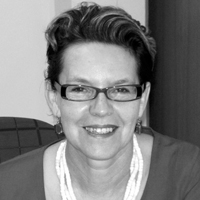
Penny Vinjevold
Deputy Director-General: Further Education and Training
Department of Education
Tel: +27 12 312 5313/4
www.education.gov.za
In 2005, the year Penny Vinjevold joined the national department of education, she served on a panel appointed by the then Minister of Education, Kader Asmal, to review the design and implementation of Curriculum 2005, South Africa’s new, outcomes-based curriculum.
She was also on the ministerial project committee appointed to oversee the development of the revised national curriculum statement for grade R to nine. Her responsibilities as DDG in charge of the Further Education and Training (FET) phase include the administration of the national senior certificate school-leaving exam as well as FET colleges, which are critical providers of technical and vocational skills.
Vinjevold taught at schools in Johannesburg, Mafikeng and Soweto before joining the public Joint Education Trust as general manager of research. In 2002 she joined the Western Cape education department as chief director for education planning and in 2005 assumed her current post.